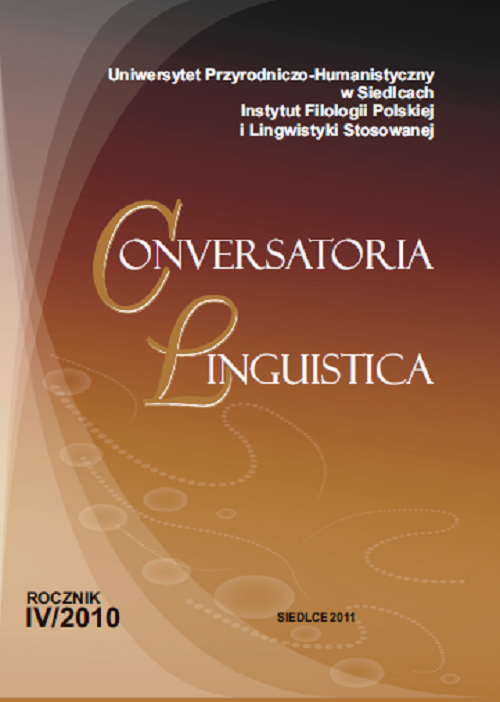Grzeczność i kultura języka studentów z deficytem słuchu
Abstrakt
The basis of this article are some behavioral observations courtesy of the deaf
youth in typical communication situations. To identify a phenomenon consistent or
inconsistent with the norms of social behavior, we isolated these facts, which are unusual
from the perspective overview of hearing students, return their attention and left
out those ones that are known and well recognized in the environment. Some specific
features and behaviors characteristic of people with hearing deficit were analyzed and
described. Sent to us text messages were used for this purpose. Such contact requires
the language skills of deaf people, both in the transmission and reception of information.
Polite behavior of students with impaired hearing, and the result depends on
many complex factors: experience (sensory information), education at home, knowledge
of the traditions, manners, language skills, a body of knowledge.
As a speech therapists, we know that the “language of politeness” pose to persons
with hearing a lot of perplexity and doubt. This phenomenon is not easy, given that on
the use of one or other form is determined not only good knowledge of Polish language,
but also the rules convenance, labels, and to the point of embarrassing that deaf
people prefer avoiding these issues and to communicate using sign language.




